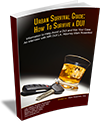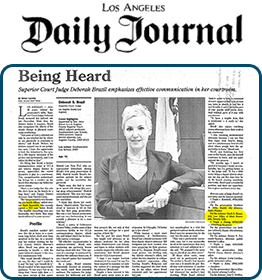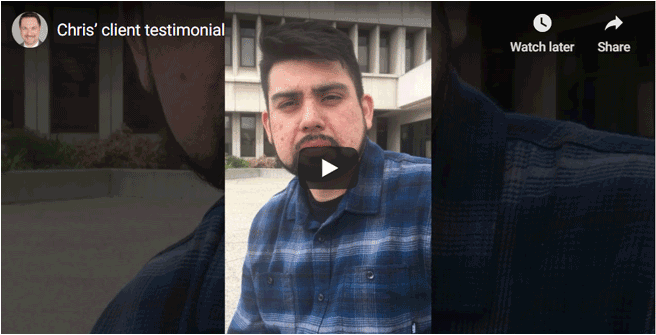In Los Angeles in particular, we get a lot of tourists, a lot of people coming to California and to Los Angeles on vacation and they do get stopped and arrested for DUI from time to time.
Out of State Drivers Still Face Administrative Action in California and Should Retain a Local Attorney
The California Department of Motor Vehicles has no direct control over the home state where someone comes from, but California does control whether or not the person has a privilege to drive in California. The California DMV can also report to the home state that there was an administrative action in California.
If someone comes to Los Angeles on vacation and they get arrested for a DUI and then they go home, they still have two cases that they need to deal with. An attorney in California could represent them even if they went home, but they still have to deal with the court case and they still have to deal with the Department of Motor Vehicles.
Within 30 Days, the Driver Could Lose His or Her Driving Privilege in California
If they don’t do anything with the Department of Motor Vehicles after 30 days, the privilege to drive in California would become suspended. That information may be reported to the home state and that person would not be able to get back the privilege to drive in California until they complied with the California DMV requirements. These could include paying a license re-issuance fee, taking classes, and depending on what happens in court, installing the Ignition Interlock Device and fulfilling the insurance SR-22 requirement.
If somebody does come to California and gets a DUI and then goes home, there are things that can be done to clear holds from the DMV; however, it’s going to depend on if the person ever plans on coming back to California and when they would plan on coming back.
Let’s say someone lives in Texas, they come to California on vacation and then go back to Texas. They may be able to wait out the suspension and just suffer a hard suspension with no driving in California for, say, six months. After that, they would file an Out-of-State Waiver showing the California DMV that they don’t live in California and won’t be driving in California. The California DMV would send paperwork to the person in Texas.
They would sign a declaration under penalty of perjury that they don’t live in California. Afterwards, it would be sent back to the DMV, and at that point, the DMV should release the hold on their license and hopefully it would not affect the home state like Texas or wherever the person was coming from.
What If a California Driver Receives an Out of State DUI?
If someone gets an out-of-state DUI and then comes back to California, there are a couple of different scenarios that may happen. The California DMV may not find out about it. On the other hand, they may find out about it and require you to take classes and get SR-22 insurance in California because they’re going to agree with the out-of-state conviction and require you to jump through hoops.
The DMV may not find out about it for years, but maybe five years or ten years from now, they find out about it and they then could require you to take certain classes here in California.
I have seen situations where someone gets a DUI, say, in Texas, takes classes in Texas, gets the SR-22 in Texas, moves to California and then the California DMV does not want to issue them a license until they do those same things again here in California.
There are some legal things that can be done to try to avoid that, but sometimes it’s more expensive to fight it than it is just to do the classes again.
Should You Retain an Attorney If California Will Not Issue You a License Due to Previous Violations?
Let’s say a person moved to California and the DMV will not issue a license because of old citations from over ten years ago. A lawyer may be able to help, but it’s going to depend on the particular facts of the situation. A lot of state laws are different than California’s laws, and a DUI in Texas may not qualify as a DUI here in California. There may be DUIs in other states where someone is driving impaired to the slightest degree which would not qualify in California.
We need to look very carefully at what the law is in the other state and see whether that matches up. We can take that before a judge or before the DMV here in California to get that issue cleared up.
Will You Still Lose the DMV Hearing If Your Blood Alcohol Level Is Not over the Legal Limit?
If a blood alcohol level is 0.09 or greater instead of 0.08 on a Breathalyzer’s result, it is still possible to win a DMV hearing. They can be won regardless of the chemical test results because there are a lot of different defenses that can be used.
Rising Blood Alcohol Defense
If we have a situation where someone is at borderline 0.08 or 0.09 that can be won by one of the common defenses called the Rising Blood Alcohol Defense. In this defense, we show that the actual blood alcohol level at the time of driving, not at the time of the test but at the time of driving, was less than a 0.08.
Your Attorney Can Utilize Expert Testimony at the DMV Hearing
This is typically done with the use of an expert. We would have a forensic toxicologist who is an expert in alcohol and the effects of alcohol in the human body come to the DMV to testify about what the true blood alcohol level was.
The DMV may have a presumption that they can rely on that if a chemical test was done within three hours of the time of driving and that result was over a 0.08, then at the time of driving, it was also over a 0.08.
But we can rebut that or show that that is not accurate and it’s relatively easy to do with an expert. Based on the information in the reports or additional information from someone talking to the expert or testifying at the DMV, we would be able to offer an opinion that at the time of driving it was less than that and, therefore, the DMV cannot suspend the license.
Borderline Blood Alcohol Limits Can Be Successfully Defended at the DMV Hearing
Ultimately, it’s the Hearing Officer’s decision but we have had a lot of success in the past with being able to get cases set aside and with winning DMV cases based on expert testimony and borderline testing.
The DMV Has Strong Motivation to Suspend Drivers’ Licenses and It Can Be Difficult to Prevail at the Hearings
DMV cases are very, very difficult yet we don’t want to misrepresent or mislead. The DMV makes a lot of money doing hearings and suspending licenses and they are really motivated to suspend driver’s licenses.
As a matter of fact, any Hearing Officer that sets aside or does not suspend a driver’s license gets that decision reviewed by a supervisor. That being said, they are still necessary and it’s still important to attend the hearing. This is because you can win based on technicalities, based on evidence or information that’s missing. You can use experts, which most people don’t do, to provide additional information to the Hearing Officer to get that result below a 0.08.
These hearings can be won and they are won on a regular basis, but they are difficult and they need to be fought and fought hard.






 Personal Attention
Personal Attention Every criminal case is unique and no attorney can guarantee the outcome of a case. The information on this site is legal advertising and for general information only. Using this site, requesting books, information, consultations or communicating with Attorney Rosenfeld through its site does not form an attorney/client relationship.
Every criminal case is unique and no attorney can guarantee the outcome of a case. The information on this site is legal advertising and for general information only. Using this site, requesting books, information, consultations or communicating with Attorney Rosenfeld through its site does not form an attorney/client relationship.








